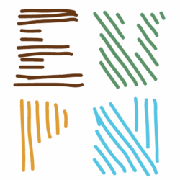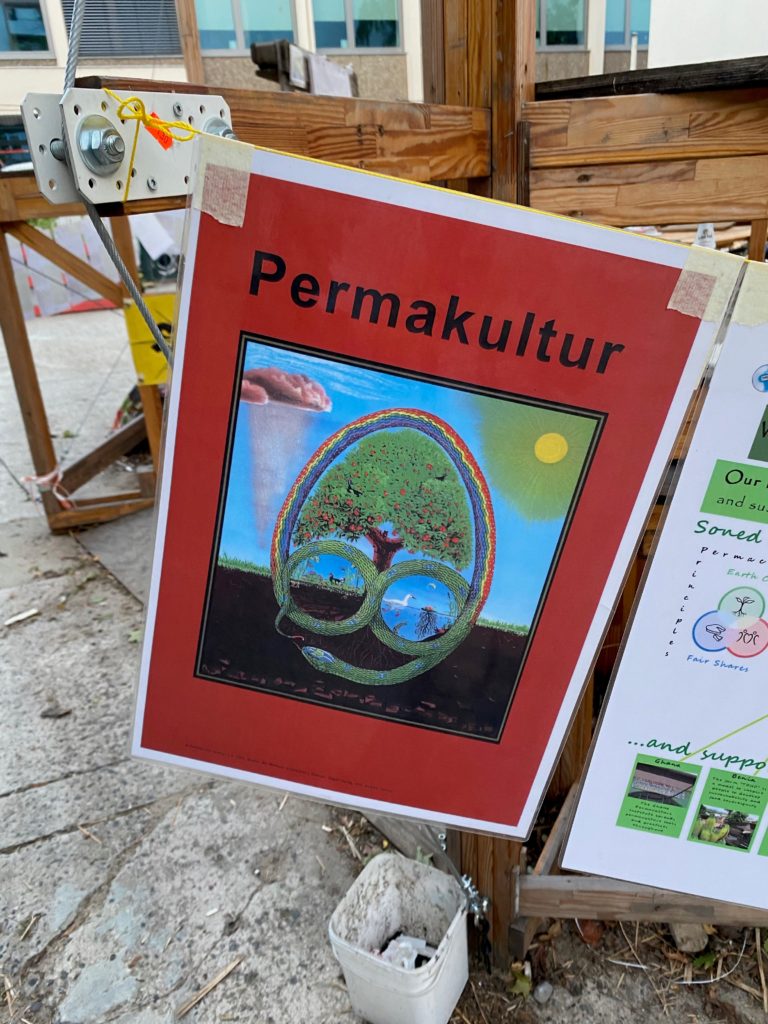
Different Places, same topic, different voices …
The 72 – hour - Permaculture Design Course (PDC) over 3 extended weekends from July to August this year was organized by Soned e. V. (Southern Networks for Environment and Development), an organization based in Berlin, which focuses on promoting permaculture and networking between initiatives applying permaculture all around the world.
Each of the three courses took place at a different location (two in Berlin, the third in Werder/Havel) and was taught by a different teacher. We were a diverse and interesting group of 15 people, who fit together very well. While, in the first days, we got a theoretic overview about approaches to permaculture, the second and third part went deeper into the principles and concentrated on examples.
In the first course, we had the opportunity to get to know the community garden »Frieda Süd« at the Friedrichstraße. This environment was very helpful to get a first understanding of the wide social, ecological, economical and interdisciplinary context of permaculture.
The community garden is run by people from the neighbourhood, for the neighbourhood. Staying on the site from morning to evening, we could observe first hand, how well it was functioning. Many diverse groups of people use this space. Elderly people and tourists in the morning, around midday mothers with children and people who volunteer to support migrants by helping with their paperwork, later, fathers meeting for their after - work beer and in between neighbours showing up to take care of their vegetable gardens. There was even a group with instruments for a jam session in the evening. All this happened, while we where sharing this vibrant space in a silent corner of Frieda Süd listening to Rike Oemisch, an experienced PC Designer, who introduced us into the topic. We learned that the term permaculture consists of the words permanent and agriculture and refers to the sincere approach to give the most valuable ingredients we can contribute: permanent time, dedication, ideas, social interaction, attention and endurance to a special field of interest, a piece of land or a group of people, animals, or plants, in order to create self-sustaining eco systems.
There are certain design principles and methods to reach this goal. The circumstances can be as wide as the range of colours of the rainbow and the solutions are not predictable beforehand. However, following the principles, totally new approaches to face individual problems and discover unusual solutions are possible. It became very clear to us that we should make use of this knowledge right now. Overconsumption, exploitation of animals, nature and soil, deforestation and unsustainable systems of food growth are important topics and can be addressed with the help of permaculture. The permaculture flower represents by its design its principles and ethics. We finished the days baking pizza in a clay oven and experimenting with planned and unplanned recipes.
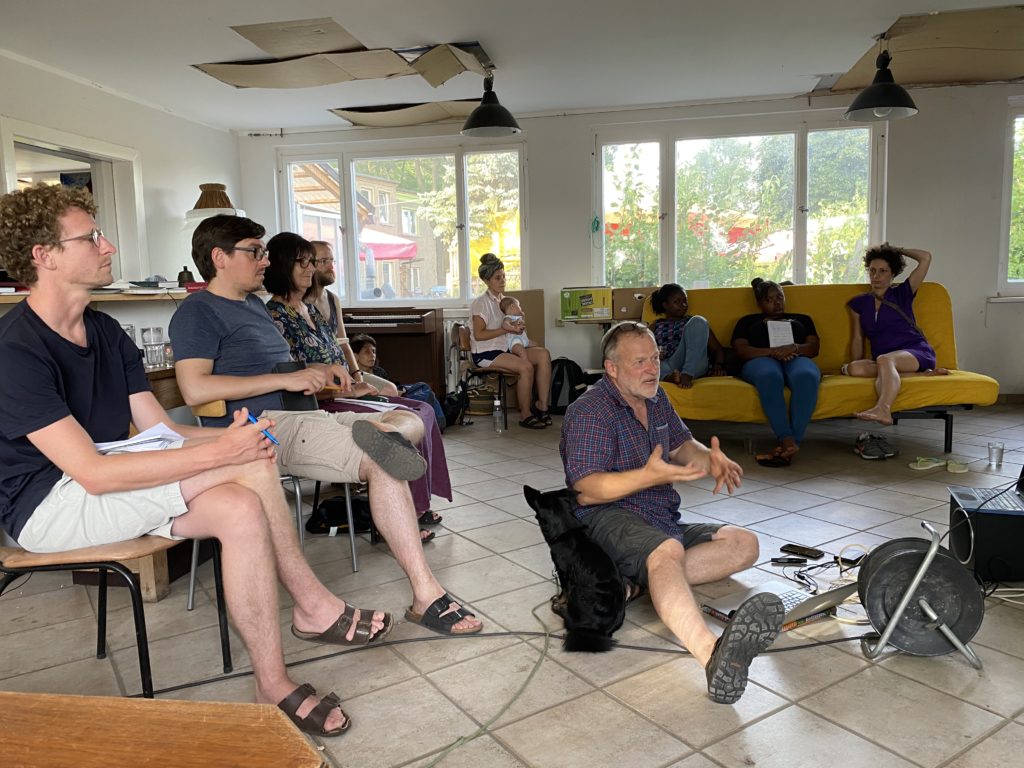
The second course focussed on the social aspects of permaculture. The chosen environment was again very much in line with the content of the course. It took place at “Kreutziger 19” a former squatted building with a beautiful backyard. The cooperative consisting of six houses provides an affordable and agreeable living space and also hosts the Soned e. V. office. The experienced permaculture designer Sonita Mbah from Cameroon introduced us further into the social aspect of the subject.
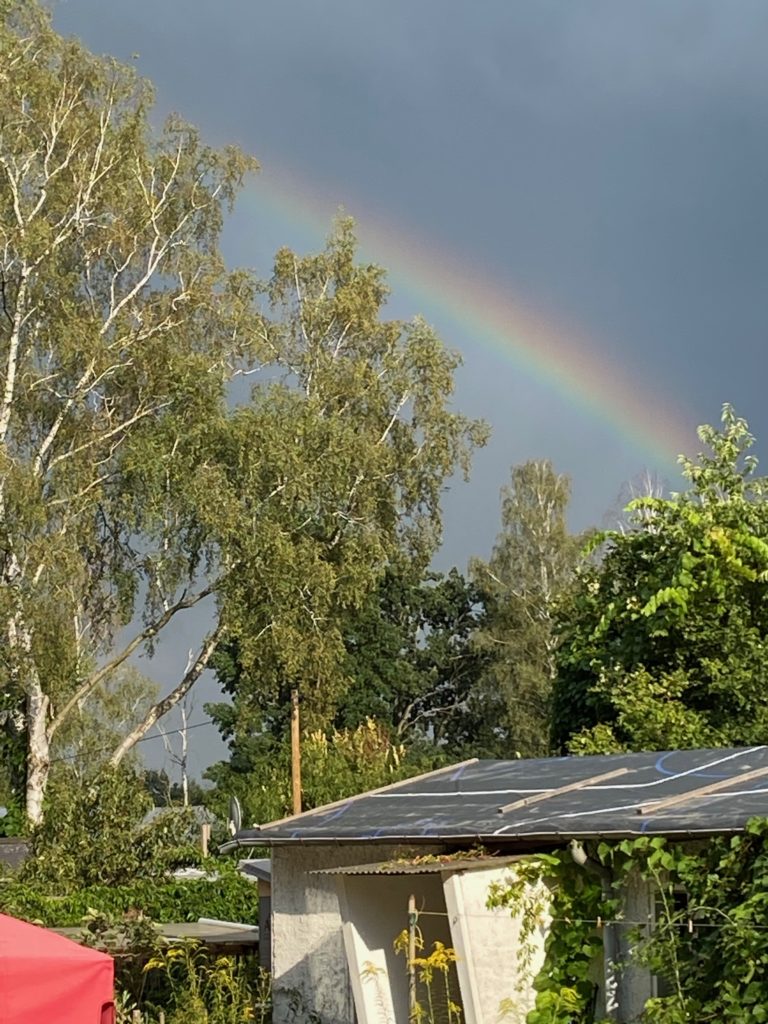
Most of us were surprised by the fairly broad questions about how to organize society on the base of equality, freedom and peace. This was not only a philosophical exercise, but also we where thrown into practice, by doing several organizational processes within the group. We learned to use the method »dragon dreaming«, a planning tool for groups. We dreamt about the upcoming »Weltfest«, which is organized by Soned e. V. every two years on a public square in the district and in our imagination, it became a new and colourful reality. We learned to see ourselves as dreamers, planners, doers or celebrators representing the different stages of a design process. At first, everybody was joking about celebrating as the last stage of the process, but reflecting on it, we found that in our society we are not much used to celebrate our completed tasks and projects. Very special to us was the evening talk of Rose Mutua, presenting a permaculture project in Kenya, which showed that there is more to permaculture than gardening and that permaculture is already being practiced around the world. Talking about the different realities, made it clear that we can and need to learn from each other. The solidarity cocktails after the presentation were great and showed little side effects the next morning.
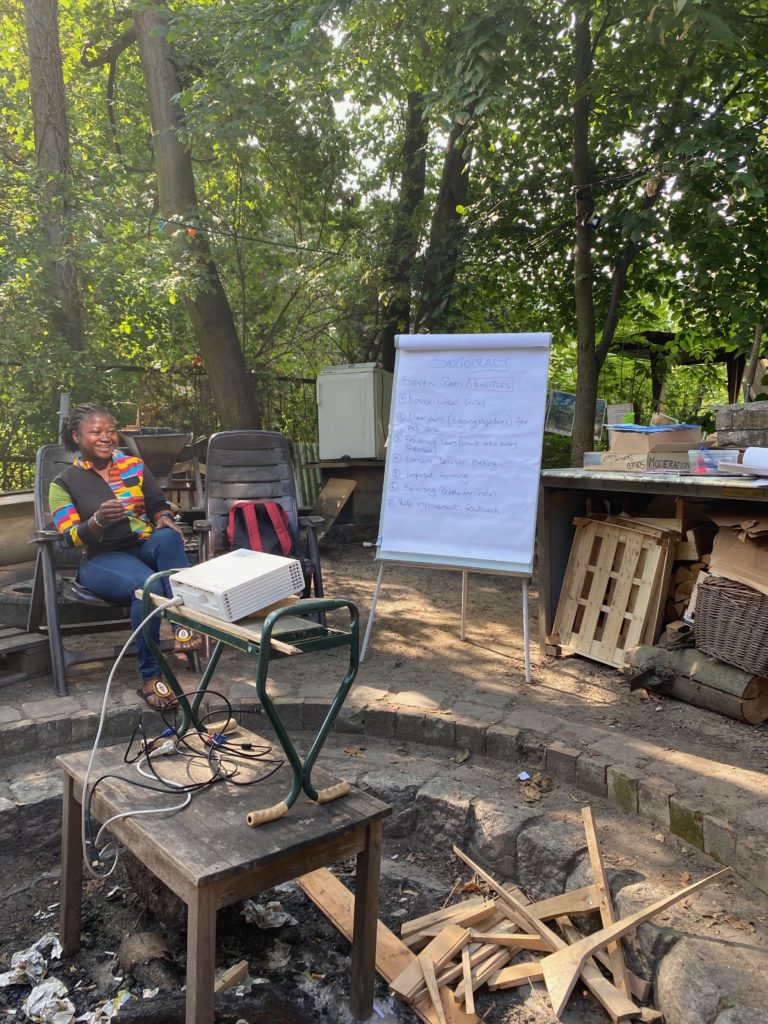
For the 3d course, we met outside of Berlin at “Dicke Eiche” in the Werder / Havel Area, a beautiful house in the countryside and close to a lake. Again this was an example of a house and wide green space organised and run by a community of people, practicing alternative ways of living in tune with nature. It felt very familiar to meet the others in beautiful and interesting new surroundings again. The group vibe, developed over the last courses, was strong and laughing was as important as providing time and space to every individual.
Robert Strauch the teacher of this last course introduced us still deeper into the topic by looking into specific possibilities permaculture offers. For example, we were taught how to read topographic maps in order to analyse a certain piece of land and be able to zone it for living, growing and saving water. Or we learned about detailed life cycles of forests and their methods of air and water processing. We also learned how farmers could answer the rise of temperature, by farming differently and using the right trees in order to protect their land from dryness. Robert´s class gave us a more hopeful view into the future we are facing regarding the impact of climate change as he offered many ideas on how to react to it. As this was also the last part of our course, it made sense that we used part of it to work on planning exciting sites, to put our newly acquired knowledge into practise. We formed groups and each one worked on a different site. The result of the group proposals was presented on the last day. This experience was challenging because of the diversity of opinions in the group and additionally, the limited time put pressure on us. However, reflecting on our outcome afterwards, we all agreed that it is an integral element of planning to discuss and exchange different opinions. Methods like the “talking stick”, “dragon dreaming” and many more are tools that can truly help us out here. We are strong in groups but we also have a huge need to have our individual ideas to be heard and respected. So, in order to form “one common shared goal” we have to open up to the process and rethink and evaluate it all the time. Like nature, processes are not static and we have to respect this constant change in order to be able to work with instead of against it.
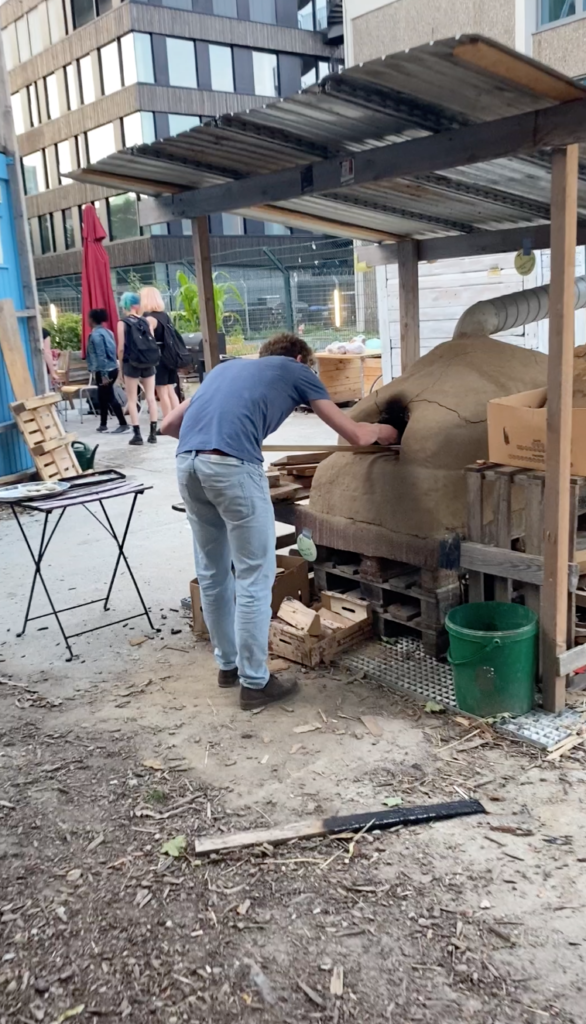
Text by: Sherin Abu Chouka, Rose Mutua, Lena Hirche
References:
https://soned.dehttps://bauhuette-kreuzberg.de/frieda-sued/